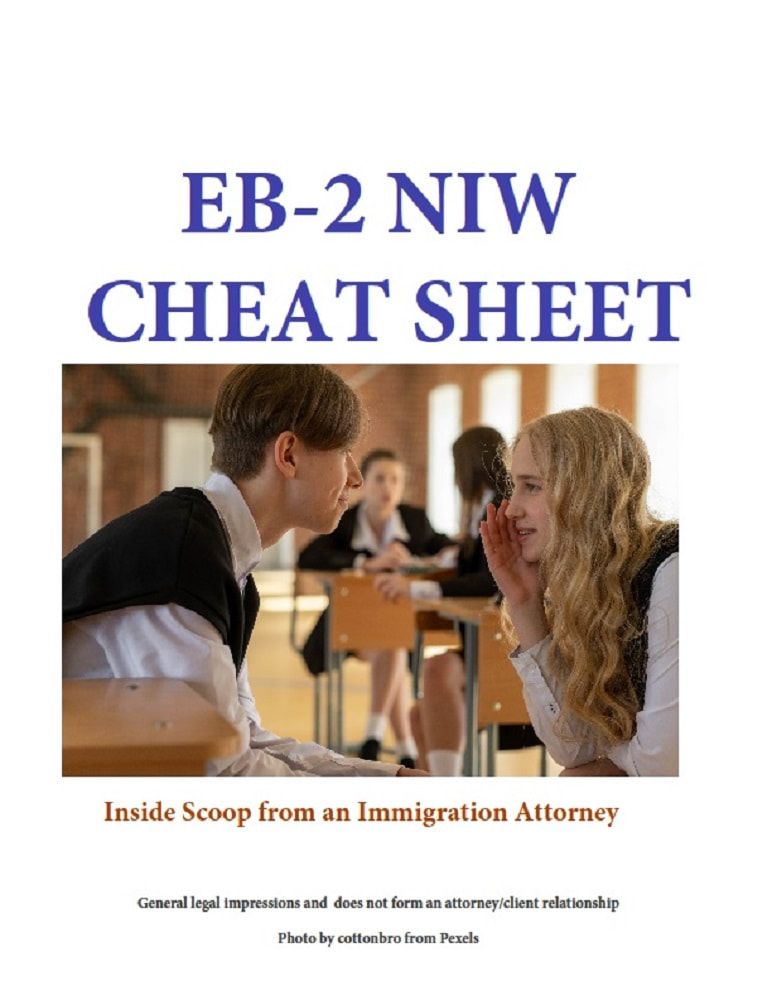 Embarking on a doctoral journey in the United States is a significant accomplishment, but for many international PhD students, the question of what comes next looms large. The prospect of obtaining a green card and securing a future in the U.S. can be a complex and daunting process. However, for those pursuing advanced degrees, the EB-2 National Interest Waiver (NIW) stands as a promising avenue for a smoother transition to permanent residency. Understanding the EB-2 NIW: The EB-2 NIW is a category within the employment-based immigration system that allows individuals with advanced degrees or exceptional abilities to apply for a green card without the need for a specific job offer or labor certification. For PhD students, this waiver can be a game-changer as it recognizes the value and contributions they bring to the nation. Eligibility Criteria for PhD Students: To qualify for the EB-2 NIW, PhD students must meet certain criteria:
Navigating the Application Process: The process of obtaining an EB-2 NIW green card can be intricate, and seeking the guidance of an experienced immigration lawyer is highly recommended. Here's an overview of the general steps involved:
Conclusion: For PhD students at U.S. universities, the EB-2 NIW offers a valuable opportunity to secure a green card and continue contributing to their field on a national scale. Navigating the immigration process can be complex, but with the right guidance from an experienced immigration lawyer, the path to permanent residency becomes more manageable. As you embark on this journey, remember that your research and expertise have the potential to shape the future of your field and make a lasting impact on the United States. 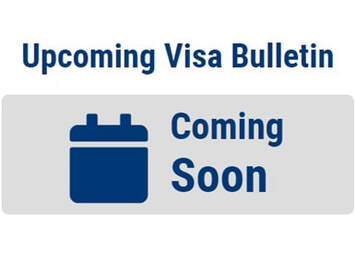 The U.S. visa bulletin is a monthly publication that lists the availability of immigrant visas for each country and category, including the employment-based (EB) category of which the EB-2 NIW is a part. Visa retrogression occurs when the number of applications for a particular category or country exceeds the number of visas available. This can cause delays in the processing of green card applications. There are a number of factors that can contribute to visa retrogression, including:
Visa retrogression can have a significant impact on people who are seeking to immigrate to the United States and to those who are in the United States and have a nonimmigrant visa that is about to expire. If you are considering a petition for an EB-2 with national interest waiver, it is important to be aware of the possibility of visa retrogression. Not only do processing times vary from just a few months to far more than a year, but if your EB-2 NIW petition is approved, you may not have a priority date that is current on the visa bulletin because of visa retrogression. If you are facing visa retrogression, there are a few things that you can do:
 Premium processing is a service provided by the United States Citizenship and Immigration Services (USCIS) that allows applicants to pay an additional fee to expedite the processing of their applications. This service is particularly useful for those who need their applications to be processed quickly, such as those applying for a National Interest Waiver (NIW). Premium processing became available to those seeking an EB-2 NIW on January 30, 2023. The National Interest Waiver is a program that allows certain individuals to bypass the standard labor certification process and apply directly for permanent residency. This program is designed for individuals who have exceptional ability in the sciences, arts, or business, or those who have advanced degrees in those fields. Applicants must demonstrate that their work is in the national interest of the United States. Premium processing for National Interest Waiver applicants allows them to receive a decision on their application within 45 calendar days, instead of the standard processing time, which can take several months. This expedited processing can be crucial for individuals who have job offers or other time-sensitive matters that require them to obtain permanent residency quickly. To apply for premium processing, applicants must submit Form I-907, along with the appropriate fee, which recently increased from $2,500 to $2,805. The USCIS will then issue a receipt notice and begin processing the application within 45 calendar days. If the USCIS needs additional information or documentation, they will issue a Request for Evidence (RFE). It is important to note that premium processing does not guarantee approval of the National Interest Waiver petition. It only guarantees that the USCIS will "act" on the case within 45 calendar days of receiving the petition, whether by making a decision or by issuing an RFE or NOID. If the application is denied, the USCIS will not refund the premium processing fee. In conclusion, premium processing can be a valuable service for National Interest Waiver applicants who need their applications processed quickly. The service can help applicants avoid delays and provide them with the certainty they need to make important decisions about their future. However, it is important to note that premium processing does not guarantee approval and applicants should still ensure that they meet all eligibility requirements before applying. Additionally, even with an approval, one can only apply for adjustment of status if their priority date is current on the visa bulletin. Photo by Oleksandr Pidvalnyi: https://www.pexels.com/photo/person-holding-pen-and-paper-2646033/  Many EB-2 national interest waiver candidates are aware that they must show that their proposed endeavor has substantial merit and national importance. But did you know that you also need to demonstrate that it is sufficiently urgent for the USA to waive your job offer and labor certification requirement? After waiting for the lengthy processing time for an EB-2 NIW, the last thing that you will want to have happen is to get a Request for Evidence (RFE) or Notice of Intent to Deny (NOID). Therefore, it is prudent to make sure that you have met all of the national interest waiver requirements before mailing your case to USCIS. Third Prong of Dhanasar Of the three main EB-2 national interest waiver criteria set forth in Matter of Dhanasar the third one tends to be the most neglected by NIW seekers. As a reminder, the third prong of Dhanasar is that on balance, it would be beneficial to the United States to waive the job offer and labor certification requirements. There are three subparts within that third prong and the last of the three asks for evidence that the foreign national’s contribution is sufficiently urgent to warrant foregoing the labor certification. Suggestions for Demonstrating Urgency of the Endeavor Perhaps your proposed endeavor is in a growing field. The BLS Occupational Outlook Handbook provides such statistics on what percentage of growth your field is expected to grow during a ten-year period. That might be some key numbers to point out to the USCIS officer. You might also find some examples of urgency on the White House and Congressional websites. The information that you might find there might also be useful for your substantial merit and national importance arguments.  Within the requirements of the EB-2 national interest waiver, there are subparts that you must demonstrate. One of the items that you must prove to USCIS is that your proposed endeavor will benefit the USA despite the availability of other U.S. workers. This can be a difficult obstacle for you to overcome if you are in a profession were there is no shortage of American professionals. Of course, there is no one set method for getting an EB-2 NIW petition approved; nor is there a fixed national interest waiver template for your case. This article provides two possible arguments for establishing that you will benefit the United States with your proposed endeavor despite the possibility of other U.S. workers being available. Should USCIS waive your job offer and labor certification? To prove to USCIS that “on balance, it would be beneficial to the United States to waive the job offer and labor certification requirements,” an EB-2 NIW candidate may provide evidence and argument that the following three subparts are true under the preponderance of the evidence standard:
2. Are you beneficial despite there being U.S. workers available? There are a variety of ways to show that an NIW case should be approved because the answer to the above question is YES. BLS.gov/ooh First of all, there may actually be a current or predicted shortage of workers in a foreign national’s job category. Checking the BLS Occupational Outlook Handbook might reveal that jobs are “likely” or “very likely” in the future. A further review might show that there is a high percentage of jobs that are predicted to be needed during this decade. This could lead to a strong argument that there is not a current availability or there will not be a future availability of American workers. Specialized skills: You are special! A second idea is that you could state that even if there are U.S. workers available, they do not have your specialized skill set. This might be a prudent time to remind the adjudicating USCIS officer of all of the evidence that you discussed earlier in your EB-2 NIW petition letter that shows that you are well positioned to achieve your proposed endeavor. You might use this information to prove that you are way different than your average person in your field.  When you petition for an EB-2 NIW you will need to prove to USCIS that a waiver of the job offer and the labor certification requirement is called for. Even if your proposed endeavor has substantial merit and national importance. There are still other elements that you will need to prove to get an EB-2 with a national interest waiver. Filing an NIW case with USCIS that does not establish all three parts of the regulations, can lead to a Request for Evidence (RFE). That can be frustrating after you have waited those many months of processing time. What do you need to prove for an EB-2 NIW? Under the framework in Matter of Dhanasar, USCIS may grant a national interest waiver if the following criteria are met: (1) The proposed endeavor has both substantial merit and national importance; (2) The Beneficiary is well positioned to advance the proposed endeavor; and (3) On balance, it would be beneficial to the United States to waive the job offer and labor certification requirements. What does the third criterion for the NIW mean? To show that “on balance, it would be beneficial to the United States to waive the job offer and labor certification requirements,” a potential NIW recipient should be prepared to prove the following:
When an employer sponsors you for an EB-2 (EB-2 with PERM), a labor certification is required by USCIS. For an EB-2 NIW, since you are asking that the PERM part of case be waived, you will need to supply some convincing reasons, supported by evidence. A labor certification concerns the actual minimum requirements for a job opportunity. Demonstrating that you have far more than the minimum criteria may be a compelling argument to show why a PERM is impractical for you. Additionally, if your proposed endeavor is to consult widely in the United States, then being tied to one company would not likely be appropriate. Of course, an entrepreneur who is seeking a national interest waiver would not need a job offer and might hopefully create American jobs. There are a variety of arguments for why a job offer and labor certification might be impractical for you. The key is that you tell USCIS what they are. 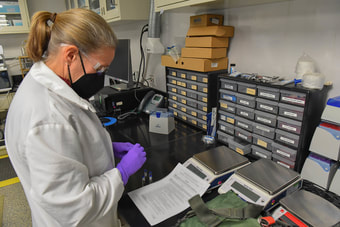 If you are a researcher and do not have many citations, or you are not a researcher at all, you might still be able to qualify for an EB-2 NIW green card. There are some law firms that prefer to focus on national interest waiver cases for researchers with hundreds of citations for several reasons, including a possible offer of a money-back guarantee if the foreign national is denied. Accepting only clients with a heavy research and patent background may help to avoid an RFE (Request for Evidence) or denial. However, there are plenty of non-researchers or Ph.D. students with just a few citations who have been approved for an EB2 NIW. It may be in the national interest of the USA to offer an NIW to a businessperson or entrepreneur, as well. These exceptional EB-2 NIW candidates may have other evidence of being well positioned to achieve their proposed endeavor besides research. Thesis or Dissertation Research Foreign nationals who have an advanced degree may have had to write and defend a thesis or dissertation as part of their graduation requirements. In addition to submitting the document as evidence with the EB-2 NIW petition letter, a national interest waiver candidate might also consider creating a Google Scholar or ResearchGate profile. Those who are in professions where they create projects or case studies might also consider adding those to their ResearchGate profile, as there is space to do so. What if you are in a business-related field and want an EB-2 NIW? There are countless professions that are not related to research but still benefit the American public or the U.S. economy. Professionals in banking, project management, or business intelligence, for example, may be able to demonstrate that they are well positioned to achieve their proposed endeavor in the United States without research. Some examples of persuasive evidence for a businessperson seeking a national interest waiver might include:
If one immigration law firm turns you down, try a different one Even if you have submitted your profile to an immigration law firm, and they told you that you were not a fit as a client, it does not mean that you absolutely cannot get approved for a national interest waiver. Different EB-2 NIW attorneys may focus on one type of professional, such as researchers, athletes, or inventors. If you believe that you meet the requirements for a national interest waiver, you might be surprised to find a green card lawyer that is interested in taking your NIW case if you keep looking. 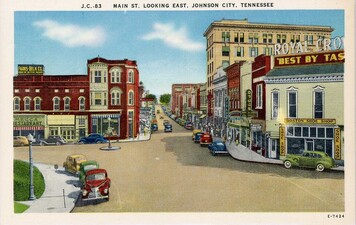 An entrepreneur, whether already present in the United States on an E-2 treaty investor visa or looking to strike out on their own after some years in a professional role, might not be aware that they could qualify for an EB2 national interest waiver green card. USCIS recently provided additional guidance and suggestions for evidence that might be appropriate for an entrepreneur who would like an NIW green card. If you are an entrepreneur, and you would like to apply for an EB-2 NIW, then you may benefit from some tips about the process. By reading below, you might also have some misconceptions about entrepreneur NIWs eradicated. FYI – There is no SOC code for entrepreneur Form I-140, the Immigrant Petition for Alien Workers, does ask for an SOC code for each primary beneficiary. An SOC is an occupational classification system to place jobs into categories. Entering the word “entrepreneur” into the search bar of O*Net will not reveal any such job category. Therefore, an EB2 NIW candidate might choose the SOC code for General and Operations Manager or the general category of their business, such as a Computer Network Architect who is an entrepreneur with a consulting business. EB-2 NIW Evidence for Entrepreneurs USCIS states on their website and in the Policy Manual that they recognize that entrepreneurs may not have the typical EB 2 NIW type of evidence; however, this does not eliminate the requirements set forth in Matter of Dhanasar. Entrepreneurs will still need to overcome the threshold criteria of the EB-2 before they can then establish that a national interest waiver of the job offer and labor certification requirements is warranted. Additionally, there may be some overlap between documentation supplied by a researcher or businessperson, such as awards or published materials about the EB-2 NIW candidate. Entrepreneurs may also present evidence of ownership of their business, such as documents filed with the Secretary of State or their business plan. Those who are currently E-2 treaty investors at the time that they petition for an NIW may already have a lot of these documents on hand from when they filed their E-2 application. Entrepreneur evidence that is not monetary Regarding EB-2 national interest waiver evidence for entrepreneurs, the USCIS Policy Manual specifically states that an NIW beneficiary does not have to rely solely on money-related evidence. Of course, an entrepreneur is likely to present plenty of documentation concerning revenue generation, the Policy Manual indicates that other evidence will also be accepted by USCIS. Metrics such as valuations, cash flow, customer adoption, and profitability may be excellent ways to show USCIS that you should receive a national interest waiver green card. However, other evidence can be equally important in demonstrating all three prongs of Dhanasar. 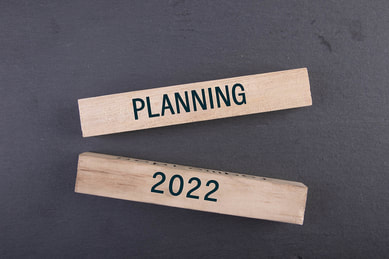 It can be difficult to demonstrate that you are well positioned to achieve your proposed endeavor in the USA unless USCIS knows what you are proposing to do. You might be unsure about how to present your future plans in the United States so that this proposal might qualify you for a national interest waiver of the job offer and labor certification requirements of the EB-2 immigrant visa. What is an NIW proposed endeavor? Under the framework that comes from a case called Matter of Dhanasar, after a foreign national established eligibility for EB-2 classification, USCIS may grant a national interest waiver if the following can be proven with evidence: (1) The proposed endeavor has both substantial merit and national importance; (2) The Beneficiary is well positioned to advance the proposed endeavor; and (3) On balance, it would be beneficial to the United States to waive the job offer and labor certification requirements. To clearly delineate one’s proposed endeavor an EB-2 NIW candidate could write a one or two-page statement of their short and long-term goals in the United States after their case is processed. Step one in creating an EB2 NIW future plan could be to write a few paragraphs about their short-term goals, the United States and they give examples of things that they have already achieved to demonstrate that their goals will be easily reached. Then a few paragraphs about the long-term goals can be added toward the end of the essay with some sentences that point out prior accomplishments to show that they are capable of achieving their future goals. What happens if you do not tell USCIS what your proposed endeavor is? Some national interest waiver self-petitioners want to pick a proposed endeavor that they think that USCIS will like. But if it has little to do with their current work or research and does not dovetail with their advanced degree, it might be a struggle to establish that the candidate is well positioned to make good on their proposed endeavor. If the NIW case is not cohesive, then a USCIS may issue a Request for Evidence (RFE) asking for a “model or plan for future activities” that further what the foreign national has already accomplished. Ask an immigrant attorney for help. If you are unclear about what your proposed endeavor should be, then your EB-2 NIW lawyer probably cannot tell you what your future should hold. Making up a future plan that you think will please a USCIS officer is not a genuine articulation of your qualifications. However, if you need an objective eye on your resume and a review of your achievements, you might ask your NIW attorney for a consultation. They may see some national benefits of your work or research that you did not realize existed.  Even if you have compelling evidence that USCIS should grant you an EB2 national interest waiver green card, it might not mean much unless the immigration officer notices it. If they cannot find the documents that show that you meet the elements of Matter of Dhanasar, then it is possible, if not probable, that you will receive an RFE or NOID. Therefore, it can be a wise move to organize your EB-2 NIW evidence for your case before mailing it to the USCIS service center. There is more than one method for doing so. National Interest Waiver Exhibit List One way to organize EB-2 NIW evidence prior to submission to USCIS is to make an exhibit list. The exhibit list can clearly show that a foreign national knows what an NIW is and the ways to meet the green card criteria. The list might be divided into the following sections:
Then the EB-2 NIW beneficiary or their green card lawyer can list the items that are included below each of the above headings on the list. Place the evidence behind each labeled page After creating the EB2 NIW exhibit list, a foreign national can start putting the supporting evidence in order. They can place the items in each category behind labeled cover sheets with the labels in the categories from the exhibit list. 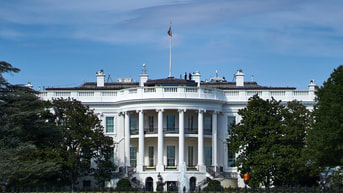 On March 1, 2022, President Biden gave his first State of the Union speech. Since he was speaking about his priorities for the USA, you might look to his address for quotes that support your arguments that your endeavors have national importance when writing an EB-2 NIW national interest waiver petition. Because there is currently no premium processing for the EB2 NIW, your petition might not be read until next year’s State of the Union address. But the statements by President Biden in 2022 would still likely be his priorities next year, as well. National Importance of Infrastructure President Biden stated in his speech on March 1, 2022, that currently our infrastructure is ranked 13th in the world. He also said that Americans would not be able to compete for the jobs of the 21st century if this matter was not addresses. A national interest waiver green card candidate might argue that they can train Americans to be competitive for jobs the 21st century. Biden also mentions the term “infrastructure decade.” Since the processing time for an EB-2 NIW green card is about 18 months without premium processing, this decade mentality may keep a foreign national’s role in boosting American infrastructure still relevant a year and a half from now if this EB2 timeline continues. National Importance of Emerging Technologies and Manufacturing Later in the 2022 State of the Union address, President Biden discussed what was recently enacted as the Bipartisan Innovation Law (Infrastructure Investment and Jobs Act). In citing the reasons that it was so important to make this legislation a law, Biden raised the topics of emerging technologies and American manufacturing. The President announced that the Act would make record investments in emerging technologies and American manufacturing. He opined that STEM workers in the United States could operate some of the most sophisticated manufacturing in the world for items that include technology that we have yet to invent. Therefore, an EB-2 NIW beneficiary might be able to argue that their role in manufacturing, automation, or patented inventions may be in the national interest of the United States. National Importance of Sustainability and Clean Energy President Biden also covered the topic of clean energy covered in the State of the Union address, and particularly because of the rising costs of gasoline. He opined that clean energy could cut energy costs for families at an average of $500 a year. He suggested the use of tax credits for Americans who weatherize their homes and businesses to be energy efficient. He also suggested that car makers lower the price of electric vehicles to save families another $80.00 a month because they would never have to pay at the gas pump again. Therefore, this section of the State of the Union speech may be quotable in an EB-2 NIW petition letter or EB-2 NIW letter of recommendation for people who work in clean energy, the automotive industry, or even economists who can analyze the costs and benefits. Check the White House Website In addition to the State of the Union address, whitehouse.gov offers reprints of other Executive Branch speeches, fact sheets, and press releases. You may find just what you need on the White House website to show that your proposed endeavor has both substantial merit and national importance in your EB-2 NIW petition letter.  As you might be aware USCIS recently provided some new and additional guidance on the EB-2 with national interest waiver. Students getting master’s degrees, or those in Ph.D. programs, are encouraged to petition for a national interest waiver, especially those in STEM fields. However, the burden is on the petitioner to prove to USCIS that an EB-2 NIW should be approved. The USCIS policy manual for the national interest waiver has a variety of resources that are referenced in the footnotes that may be helpful for making a convincing argument that your EB-2 NIW should be approved. Below are three of them. Where to Find the USCIS Policy Manual for National Interest Waiver A straightforward way to find the USCIS Policy Manual and its section on the EB2 NIW is as follows:
National Strategy for Critical and Emerging Technologies for EB-2 NIW One footnote from the policy manual section on the national interest waiver references the National Strategy for Critical and Emerging Technologies. A foreign national in a technical field can find a great deal of helpful information in this document. On the last page of the strategic publication is a list of 20 critical and emerging fields. Those whose role is listed here can include this information in their EB-2 NIW petition letter. Use Interim National Security Strategic Guidance for NIW The new guidance regarding the national interest waiver also discusses national security. Therefore, if applicable to a graduate student, Ph.D. candidate or professional, the Interim National Security Strategic Guidance may be useful to reference in an NIW petition letter. The document can be found at footnote #67 of the USCIS Policy Manual section on National Interest Waiver of the Job Offer. On page 9 of the Interim National Security Strategic Guidance is the start of the segment on national security. Here, persons in cybersecurity or financial risk might find persuasive arguments for demonstrating that it is sufficiently urgent for the USA to waive the job offer and labor certification requirement. Memorandum on Research and Development Priorities Researchers and those who have advanced degrees in STEM fields might find a wealth of information in the Memorandum on Research and Development Priorities, which is also identified in the footnotes of the USCIS Policy Manual section on National Interest Waiver of the Job Offer. There are several current topics that can be helpful in arguing that a foreign national’s proposed endeavor has substantial merit and national importance. For example, this reference tool discusses pandemic readiness and prevention as a priority. Another part refers to the need for research and development around climate change. Strategize with an EB2 NIW lawyer near you. Although you can self-petition for a national interest waiver, it may be prudent to consult with an NIW attorney who handles such cases on a regular basis. By explaining to the EB-2 national interest waiver lawyer in your area, or virtually, between the two of you, you can brainstorm some other resources for compelling arguments for your case. 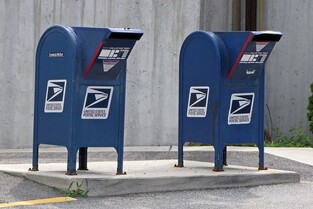 When you are self-petitioning for a national interest waiver, you will want to make sure that you send your case to the correct USCIS service center or lockbox. The EB2 NIW processing times can be long because of the backlog that has been exacerbated by COVID-19. When trying to obtain a national interest waiver, you will also be paying a high filing fee for the Form I-140. Therefore, it would be in your best interest to make you that you find the address to mail your form I-140. Where do you find the filing address for the EB-2 NIW? One easy place to find the filing addresses for the Form I-140, or for many USCIS forms, is to go to uscis.gov and click on “Forms.” Once on that page, foreign nationals or their immigration lawyers can click on “Filing Guidance,” then “Where to File,” and a list of types of forms will appear. After clicking on the hyperlink for Form I-140, a variety of addresses will be shown on the subsequent page. Because of the lengthy EB2 NIW processing times, since there is no premium processing currently offered, many candidates chose the addresses in the first section, “Filing I-140 by itself.” However, there are different addresses for concurrent filing with adjustment of status forms and documents. Which of the address choices should I pick for mailing my EB2 NIW case? In addition to deciding whether to file the national interest waiver case by itself, or filing it concurrently with AOS documents, a foreign national should consider several other factors. Those who wish to pay their filing fee with a credit card would need to send their EB2 NIW forms and supporting evidence to a USCIS lockbox. Additionally, the address to mail the immigration case using the U.S. Postal Service differs from the one for using an alternative shipping method. You can always Ask Emma. If you would like to ask a question on uscis.gov, you can type key words into the search bar. Ask Emma is the chat bot that might be able to provide an answer or point you in the right direction. Of course, if you are working with a green card lawyer on your EB-2 NIW case, your immigration attorney can mail your national interest waiver package to USCIS for you. Then you can get your forms and evidence to the correct service center, and the EB-2 NIW processing time can begin. 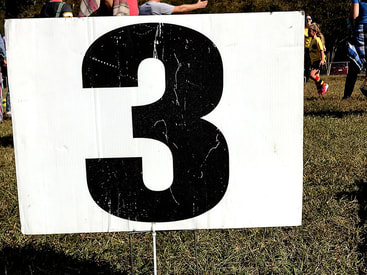 The EB2 national interest waiver is an immigration benefit for which you can self-petition. Therefore, you might choose not to work with an immigration attorney near you to apply. Even if you do choose to hire an EB-2 NIW lawyer you might want to become familiar with the cases that USCIS refers to when processing your petition and deciding whether it meets all criteria. The following are three cases that related to the national interest waiver. Matter of Brantigan Matter of Brantigan is a Board of Immigration Appeals case from way back in 1966. It says, in part that the burden is on the petitioner to establish eligibility for the immigration benefit. Therefore, in the instance of the EB2 national interest waiver, the petitioner would generally be the foreign national or their green card lawyer. The petitioner will need to demonstrate with evidence that the foreign national is eligible for the national interest waiver. Matter of Chawathe An Administrative Appeals Office (AAO) decision from 2010, Matter of Chawathe discussed the standard of proof in an EB-2 NIW case. Unlike with a criminal proceeding where the standard is “beyond a reasonable doubt,” with the national interest waiver green card, the level of proof is by a “preponderance of the evidence.” As is explained in the AAO decision, basically this means that the evidence should prove that it is more likely than not (or probably true) that the foreign national meets the criteria for a national interest waiver. Another way to view it is by considering the evidence as more than 50% likely to be true. Matter of Dhanasar Matter of Dhanasar, which is a 2016 case, established the new standards for the EB2 NIW, Prior to 2016, the standards were slightly different. Under these new criteria, after proving that the foreign national is eligible for an EB-2, they must show the following to USCIS: (1) The proposed endeavor has both substantial merit and national importance; (2) The Beneficiary is well positioned to advance the proposed endeavor; and (3) On balance, it would be beneficial to the United States to waive the job offer and labor certification requirements. Talk with a green card lawyer Immigration regulations, or interpretation of current laws, are subject to change. Therefore, it can be prudent to discuss your green card matter with an immigration attorney who keeps current on new developments in the courts and at USCIS. An EB-2 NIW lawyer can also inform you about current processing times, whether premium processing is available, and if there have been changes to the USCIS filing fees.  A common question among foreign nationals who are applying for an employment-based green card is, “How many letters of recommendation will I need?” Of course, a general response from immigration attorneys is “It depends on your case.” No two NIW cases are exactly the same, so a thorough review of your background generally gives the green card lawyer a better idea of what will build a strong petition. There is no set number of letters of recommendation that are required by USCIS. Therefore, the content, rather than the quantity, of the letters may be more important to create a compelling national interest waiver evidence package. Common numbers of LORs Three to five letters can be an adequate number of letters, especially when there is other evidence to support it. An EB2 NIW petition could have as many as 8 to 11 LORs and still receive an RFE. Yet a strong national interest waiver petition could have as few as 3 to 5 letters of recommendation and still be approved. The letters of recommendation generally do not make or break a petition that otherwise meets the Dhanasar criteria. Showing years of employment with letters Those EB-2 NIW beneficiaries who have ten or more years of employment may need more letters of recommendation than other candidates. Such persons may want to provide supporting evidence of their decade or more of experience to show that they are well positioned to achieve their endeavors in the United States. Persons who have had more jobs during the past ten years may need more LORs to demonstrate this employment. For example, someone who has changed positions every other year during the last decade might need five letters to establish these responsibilities. Letter of employment can be provided by human resources or a person in a supervisory role. What USCIS does say about letters? In the USCIS policy manual, the service indicates that a letter may be given some weight, but they should not be the “cornerstone of a successful claim.” It can be important to have other objective evidence to go with an EB petition as well, rather than trying to get somebody to say something in their letter that will prove what a green card candidate has done without other documents to support the statements. Your immigration attorney might help Green card lawyers in your area have likely reviewed hundreds of letters of recommendation. Therefore, they may have ideas for what might be included in a letter of recommendation to strengthen your national interest waiver case. 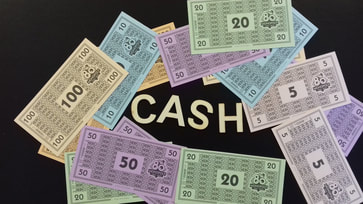 If you are going through the EB2 national interest waiver green card petition process, you might be able to show USCIS that you are well positioned to achieve your goals in the United States in a variety of ways. One straightforward method to demonstrate that you are well positioned is by providing evidence of earning a high salary. Since you are probably aware of the cost of an EB2 NIW filing costs and attorney billing, you are likely to command a fairly high level of compensation if you can afford these fees. The key; however, is to show the USCIS officer that you earn more than your peers. How to Show Evidence of High Salary USCIS officers have become accustomed to seeing certain documents as evidence of high salary and offering too many pieces of random paperwork can create confusion, doing more harm than good. Compelling documents include a W-2 tax form accompanied by paystubs for the portion of a year for which a W-2 is not yet available. More speculative documents, such as a letter of offer of employment or agreement for stock options, tend to serve better as supplements to a W-2 and paycheck receipts, rather than being the sole examples of high salary. How to show high salary compared to peers Requests for Evidence from USCIS tend to consist of copied–and-pasted paragraphs that are common among the immigration petitions of a certain type. RFEs for an EB-2 NIW that cite high salary as an example of a green card candidate being well positioned tend to question the ways that salaries are compared to others. General Salary Comparison to Peers Many foreign nationals find the average salary for their profession from the U.S. Bureau of Labor Statistics. Additionally, O*Net, which provides a position’s SOC code, has a companion site called My Next Move. Here, one can locate both the median salary for a particular role in the United States, as well as the highest salaries. However, there are additional ways to demonstrate high salary compared to peers with more specificity. Salary Comparisons Based on Location and Experience Job search websites such as Glassdoor, Indeed, and LinkedIn have a feature where someone can check salaries for certain roles in particular parts of the United States. Finding salary data for the exact city or metropolitan area where an EB2 NIW beneficiary works provides a more specific comparison to their own. Additionally, if available, a foreign national can also provide USCIS with information on the average and highest salaries in their particular industry and/or with their number of years of experience. Providing this information with an EB-2 NIW petition letter and Form I-140 can help to avoid an RFE from USCIS. Ask an immigration lawyer near you for help. Although foreign nationals can self-petition for a national interest waiver, sometimes it can be worth it to retain an immigration lawyer who handles EB-2 NIW petitions on a regular basis. 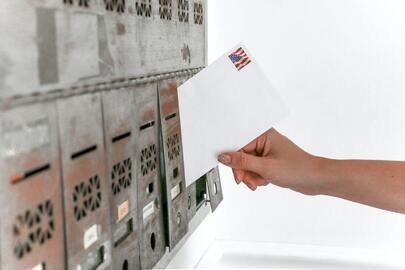 Letters of recommendation are commonly used as evidence that a foreign national should receive a national interest waiver to live and work in the United States. If you are seeking an EB-2 NIW you will likely need three to five letters of recommendation from employers, professors, colleagues, and others whom you have impressed during your career. Because your potential recommenders are often as busy as you are, they may ask you to draft the letter yourself and provide it to them for signature and letterhead. But that then leaves you with the dilemma of how to write an EB2 NIW letter of recommendation, and you will likely look for sample LORs. How to Begin an EB-2 NIW Letter of Recommendation Since most foreign nationals provide USCIS with more than one letter of recommendation, each of the salutations on the EB-2 NIW LORs can vary, so that each of the 3-5 endorsements look different from each other. Some sample ways to begin a national interest waiver letter of recommendation include the following:
The second paragraph should be about the recommender The second paragraph of an EB-2 NIW letter of recommendation will differ depending on the type of recommender. It should state the person’s name, their title, and a bit about their education. For an executive recommender, the second paragraph of a national interest waiver LOR may describe their career or any specific accomplishments that they have such as awards. An academic recommender’s letter of recommendation might list examples of notable published research or patents. Although some sample NIW letters of recommendation may spend several pages on the kudos garnered by the recommender, spending too much time on these accomplishments can distract attention from the green card beneficiary. Although some discussion of the recommender’s education and awards can lend some credibility to the letter and show that this person’s opinion about you should carry some weight, ideally no more than two paragraphs about the recommender are likely necessary. What are the EB2 NIW beneficiary’s, talents and qualifications? After a few paragraphs about the signer of the NIW letter of recommendation, there can be a few sentences about how that person knows the EB-2 beneficiary. For example, they might be a work supervisor, a thesis advisor, or heard the EB2 NIW seeker speak at a conference. Next would be several paragraphs on how the foreign national stands out from among their peers because they have specialties in the areas of X, Y, and Z. Mentions of a sampling of specific awards, memberships, published research, and citations, might also be appropriate items to include in this section of the EB-2 NIW letter of recommendation. Substantial Merit and National Importance Then it might be prudent to include a section on how the EB2 NIW beneficiary's work has substantial merit and national importance. Going on whitehouse.gov and congress.gov are excellent websites to find examples of national importance. The information about substantial merit and national importance should read a natural, rather than quoted from the website. That way this section of the letter seems like more of a recommendation than a research paper. Write a closing for the letter The ending on an EB-2 national interest waiver letter of recommendation can be like any sample LOR. It can restate a vehement endorsement of the foreign national for a national interest waiver. Finally, it can tell USCIS that they can feel free to contact the recommenders should any other information be needed or if there are questions. The signer of the letter should include their title and contact information. Photo by Element5 Digital from Pexels  The EB2 National Interest Waiver, as you might know, has three requirements which derive from Matter of Dhanasar. Many NIW seekers are highly familiar with the substantial merit, national importance, and well positioned criteria, but somehow the third prong of Dhanasar gets glossed over in their petition letter. The third requirement listed is Dhanasar is that would be beneficial to the United States to waive the requirements of a job offer, and thus a labor certification. It would be to your credit to show USCIS that you meet this criterion as well when you apply for an EB2 NIW green card. Job offer/labor certification is impractical The first portion of establishing that the USA should waive the job offer and labor certification requirement can discuss its impracticality as it applies to the NIW seeker’s career. For example, a researcher might conduct research in more than one lab, depending on where grants are available for funding. Additionally, someone who has a unique specialization that would not be clearly described in a labor certification can use this section of the petition letter to tell that fact to USCIS. Also, a foreign national who is an entrepreneur can point out in their petition letter that they are employing themselves and will be creating jobs in the United States. Benefit the USA despite the availability of other qualified American workers Although it might be arguable that there is a shortage of American workers in many fields, an EB-2 NIW self-petitioner can proceed with caution and include an argument that even if there were other qualified U.S. workers available, it would still benefit the USA to grant the national interest waiver. One way to show that a foreign national will benefit the United States despite the availability of American workers is to cited statistics on the projected growth of the career. Searching for numbers in the Bureau of Labor Statistics Occupational Outlook Handbook at bls.gov/ooh is a marvelous way to establish potential future labor shortages in the coming decade. Sufficiently urgent to warrant a waiver of the labor certification Restating the national importance of the proposed endeavor in the United States can be a great way to establish the urgency of granting an EB-2 national interest waiver. Websites like whitehouse.gov and congress.gov may provide excellent examples of what is currently being discussed on the floor of Congress. There could be an executive order that reflects the urgency of the endeavors, or perhaps President Biden mentioned the work in a speech. It may be prudent to discuss these facts in this part of the petition letter, even if it was listed in the section on substantial merit and national importance. Talk to an immigration attorney with EB-2 NIW experience Immigration lawyers who focus on green cards for highly skilled professionals may be able to provide you with valuable information on how you can achieve an EB-2 NIW. A capable NIW attorney in your area, or who is available remotely, may have prior clients in your field that have been successful in showing USCIS that they meet the Dhanasar criteria. By discussing your qualifications with an EB2 NIW lawyer, you can also learn more about national interest waiver processing times and filing fees.  Attorney fees for a national interest waiver green card can be pricey. Even when you are self-petitioning for an EB-2 NIW yourself, you are still faced with the $700 Form I-140 filing fee for USCIS. Lucky for you, there are some things that you can do to prepare for your NIW petition that are free or low-cost. For example, you might be able to show that you are well positioned through memberships without spending too much money. Well positioned through memberships Whether a foreign national is applying for the EB2 NIW or the EB1A extraordinary ability green card, one of the categories that can be established fairly easily is memberships. Becoming a member of a professional organization, or more than one, might be an excellent way to show a broad network of colleagues in the United States. Of course, the topic of this article is to discuss how to do so without spending too much money. When professional organization dues are less expensive, an EB2 NIW candidate may be more apt to join more than one organization. OK, Google Searching for what professional organization is appropriate for one’s career may involve some internet browsing. Tying “free membership professional organizations” in the search bar can lead to websites like Job Stars can lead to lists of professional memberships by career category. Finding low-cost organizations to join that have the word “National” or “American” in their name can be a bonus. This can be one method to show that one is well positioned in the United States in an obvious manner. There is another step... National interest waiver seekers should not forget to search for the bylaws and include them with your petition. Along with the membership card or the “welcome to the group email,” an EB-2 NIW candidate can also attached bylaws of the professional organization to their green card petition as supporting evidence. Locating the membership requirements, ethical standards, and grounds for disqualification in the bylaws of the professional group can help to establish that they require outstanding achievements of their members. Communicate with your EB2 NIW Lawyer Whether you are working with a national interest waiver attorney near you, or one whom you have retained through a remote law firm, it can be wise to communicate your current memberships with professional organizations, so that they can be used as evidence for your green card petition. Your EB-2 NIW lawyer may be willing to brainstorm with you about some memberships in your industry that might be appropriate for your green card case. 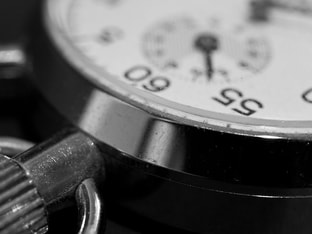 With the current USCIS backlog the way that it has been since 2020, you might be wondering what the processing time will be for your EB-2 National Interest Waiver case. In the past the processing time for the EB-2 NIW was five to nine months, but things have changed, just as life as we know it is drastically different. If you are a curious person, you might also ponder how the United States Citizenship and Immigration Service estimates what the case processing time will be. Although this knowledge will not likely make the EB2 processing timeline faster, at least you will be aware of how this estimate is determined. History of USCIS Case Processing Time Estimation USCIS has changed the way that they calculate average case handling timelines for some types of cases, including the EB2 NIW green card. The Old Way From 2009 through 2017, USCIS would use the “cycle time” method for all cases. They would take into account the entire group of receipt and pending case counts. The way that USCIS explains it is that “Cycle time is the number of previous months of receipts it takes to equal the current month’s pending receipt volume.” They still use the cycle time method for determining average case processing times for some types of cases and forms, including the following:
The Updated Way For purposes of the EB-2 NIW and subsequent adjustment of status, national interest waiver beneficiaries should be aware that in 2018 USCIS started using the “processing time” methodology. For the Form I-140 that is mailed to USCIS with the EB2 NIW petition letter, as well as the I-485 (adjustment of status) and I-765 (work authorization/EAD), case processing times are calculated using the new method. That means that in a concurrent filing for an EB-2 NIW, only the Form I-131 for a travel document would be subject to the “cycle time” methodology for computing the processing time. What is the EB2 NIW timeline, and how is the EB-2 NIW case processing time calculated? When it comes to estimating the processing time for the national interest waiver, the EB-2 NIW is subject to the “processing time” methodology. This method for calculating NIW processing time tends to be more precise as it uses more recent data to determine the date range. The service provides an estimated time range for when the case should have been processed, as well as a receipt date for which a beneficiary can submit a case inquiry if they have not received notice from USCIS. The lower number in the time range is the period that it generally takes to process 50% of the cases; whereas, the higher number is the number of months that it takes USCIS to process 93% of that type of case. Be sure to share your current status and plans with your attorney If you are not self-petitioning for your EB-2 NIW immigrant visa, then you are likely working with an immigration lawyer in your area or virtually. It can be prudent to share your current status with your green card attorney at the beginning of your case, as well as when your status will expire. That way you can plan around EB-2 NIW case processing times accordingly, so that you can maintain your status in the United States.  It can feel incredibly frustrating to have filed your EB-2 NIW green card petition and waited the sometimes 18 months of processing time, only to receive a request for more evidence (RFE) or a Notice of Intent to Deny (NOID). Worse still is when you are diligent in responding to the RFE or NOID, and then you get denied by USCIS. As with most failures; however, you can learn something from the green card denial. Either you can use the information gathered from USCIS to refile your case, or you can hire a new or different lawyer to do it for you. Learning from an RFE Since premium processing on the EB-2 NIW green card petition is only available to a limited number of cases, you may not receive your RFE from USCIS until after about 18 months of processing time. After you respond to the RFE, if you receive a denial of your green card petition, you can still use the RFE letter as a bit of a “cheat sheet.” Now you know what USCIS said was lacking in your original petition and the examples of evidence that you might provide to make the EB-2 NIW case approvable. So when you refile you can combine all of the evidence from both the original NIW petition and the RFE response. Speak Their Language Another goldmine that can be excavated from an RFE letter from USCIS is specific language. If USCIS cites a specific court holding or statute when stating that your EB-2 NIW is deficient, you can use that same language in your petition letter when you refile. For example, here is a sample paragraph from an actual EB2 NIW green card RFE letter: “Please submit evidence to establish that, on balance, it would be beneficial to the United States to waive the requirements of a job offer and thus of a labor certification. This balance was described in Dhanasar as on one hand protecting the domestic labor supply through the creation of the labor certification process, while on the other hand recognizing that in certain cases the benefits inherent in the labor certification process can be outweighed by other factors that are also deemed to be in the national interest. USCIS may evaluate factors including, but not limited to, the following:
Therefore, since USCIS gave you a “gift” in the form of bullet points, you can have headings in your refiled EB-2 NIW petition letter based on each of the five factors above that apply to you. Asking an Immigration Attorney to Refile Your EB2 NIW Case If you filed the first case on your own, you might consider consulting with an immigration attorney on your second EB-2 NIW green card filing. Often it is more difficult for an immigration lawyer to save your case by responding to your RFE than it is for her to rework and refile the NIW case. Photo by Daria Sannikova from Pexels  If you are considering coming to the United States as a student, you may be still in the planning phase and feel confused about the alphabet of visas offered by the Department of Homeland Security (DHS). Unfortunately, the names of the visas do not correspond with the first letter of their purpose, in most cases. This article will discuss the following to help you to plan your stay in the United States:
F visa vs. M visa An F student visa covers a variety of educational categories. The U.S. Department of State lists the following:
F and M visas for spouses and children Foreign nationals who are approved for an F or an M visa to the United States may be able to bring their marital partner and their unmarried minor children with them. These dependents would be issued an F-2 or an M-2 visa. The children would be able to attend school while they are in the United States residing with their parents. Each dependent would be issued a Form I-20 by the main beneficiary’s education institution, so that they can apply for their visas. Student Visa vs. Visitor Visa Some may believe that they can circumvent the whole Form I-20 process by just arriving in the USA on a visitor visa and enrolling in school. Unfortunately, this will not work. B1/B2 visitor visa holders are not authorized to go to school or work in the United States. Although a new student visa can be issued up to 120 days before the school program starts, an F or M visa holder may not enter the United States more than 30 days before the start of the instructional program. Alternatively, continuing F or M visa students may enter the United States at any time prior to the start of their program, so long as they are currently enrolled in an SEVP-approved program and in SEVIS. Can you go from an F-1 or M-1 visa to a green card? Although the intention for F-1 or M-1 students should be to depart the United States upon completion of their program, some may have the opportunity to remain in the USA. Many students do practical training, such as CPT, OPT, and/or STEM-OPT as part of their studies. This may lead to a dual intent H-1B visa through a sponsoring employer. Those who are getting a master’s degree or a Ph.D. may want to consider applying for an EB-2 National Interest Waiver (NIW).  When you are living and studying in the United States on an F-1 student visa, your wallet can empty out quickly. Out-of-state tuition, books, and housing add up, and your on-campus employment may not be much of a help. Fortunately, the United States Citizenship and Immigration Service (USCIS) considers special situations that may warrant the granting of an Employment Authorization Document (EAD) to an F-1 visa student. Of course, this is done per their discretion, rather than a guarantee. What does USCIS consider a special situation? USCIS realizes that natural catastrophes and other extreme occurrences can affect one’s immigration needs. In such situations, CIS can consider certain requests on a case-by-case basis. Some of the entreaties that USCIS will evaluate include those for delayed extensions or changes of status; fee waivers; and employment authorizations for F-1 visa students. This article will focus on the third type of request. Severe Economic Hardship to F-1 Students Caused by Unforeseen Circumstances If an F-1 visa student experiences severe economic hardship because of unexpected circumstances that are out of their personal control, they can request an EAD card so that they can work off-campus and make more money. Some examples of unforeseen circumstances that USCIS considers include the following:
How an F-1 Student Can Apply for An EAD Card An F-1 visa student who believes that they have a qualifying unforeseen circumstance can apply for an EAD card by filing Form I-765 with accompanying evidence of the hardship. Additionally, the Designated School Official (DSO) will need to complete the employment page on their Form I-20. This will show that they are eligible for off-campus employment due to severe economic hardship caused by unforeseen circumstances beyond their control. An approved EAD card for an F-1 student is valid in one-year intervals until the expected date of graduation so long as the need for off-campus employment still exists. Applying for Special Student Relief Certain F-1 visa holders can also apply for special student relief that can allow them to receive an EAD card. Examples of students who might qualify for special relief include the following:
Students on an F-1 visa who believe that they might qualify for special relief should submit Form I-765 and their Form I-20 to USCIS with compelling evidence of their needs. Ask an immigration attorney near you If you are not sure whether your case might be considered by USCIS to be a special situation, or if you need help with presenting a compelling request to the immigration service, you might consider talking it over with an immigration lawyer near you. You can also join our Facebook group, “OPT to EB-2 NIW.” Photo by Pavel Danilyuk from Pexels  If you would like to achieve an employment-based green card, but you do not want to get a job offer and labor certification, the EB-2 national interest waiver might be for you. Foreign nationals are able to self-petition for this type of lawful permanent residency, even if they are living outside the United States. Self petitioning; however, does not mean that an individual cannot access the experience of an immigration attorney. In fact, a lawyer who handles employment-based green cards can actually serve as the petitioner for the case, as well. Matter of Dhanasar In December 2016 the framework for the EB-2 national interest waiver changed as a result of Matter of Dhanasar, a case that sought to revamp the criteria for achieving a waiver of the job offer and labor certification requirement of an EB-2. What resulted is the current three-prong test for an NIW:
Proposed Endeavor The second element for an EB-2 NIW, according to Dhanasar, is “that the foreign national is well positioned to advance the proposed endeavor.” But how does one show what their proposed endeavor is? And what qualifies as a proposed endeavor? Fortunately, an EB-2 NIW candidate does not have to establish that their plans will definitely be successful in the United States once they are granted permanent residency. Therefore, the petitioner can submit a one-page future plan of their short and long term goals, or they can submit the large personal plan that has recently become popular among immigration tools merchants. According to the Dhanasar case, being well positioned to achieve a proposed endeavor can be evidenced by “a model or plan for future activities; any progress towards achieving the proposed endeavor; and the interest of potential customers, users, investors, or other relevant entities or individuals.” Other items can also assist in proving that a potential NIW beneficiary is well positioned. Using EB-1A criteria to show that you are well-positioned Although the EB-1A is a different type of green card that requires that a candidate be one of few who has risen to the top of their field, if an EB-2 NIW petitioner can show that a foreign national meets some of the criteria, this could demonstrate that they are well positioned. The EB-1A extraordinary ability green card requires that someone meet at least three of ten criteria. If a second preference NIW candidate can show evidence that they fall into any of those ten criteria, they might be able to use that information to prove that they are well positioned. For example, they might submit examples of their published research, membership cards from professional organizations, or evidence of having judged the work of others. Moreover, letters of recommendation can be useful ways to show one’s stature in a particular industry. Ask an EB-2 NIW immigration attorney near you If you want to consult with an attorney before filing a second preference green card petition, it may be prudent to speak to one who handles the EB-2 NIW on a regular basis. After all, if you want really good Italian food, you do not go to a restaurant that has a diverse menu, right? You seek out a chef that prepares that type of cuisine on a regular basis. Photo by Li Sun from Pexels  If you are a professional or a researcher, and you want to achieve a green card without a job offer or labor certification, an EB-2 national interest waiver might be for you. You might believe that your work is quite meritorious and could benefit the USA, but that may not be enough. United States Citizenship and Immigration Service (USCIS) officers tend to look for particular characteristics of a I-140 national interest waiver petition before they believe that it is approvable. Therefore, it can be beneficial to learn as much as you can about the EB-2 national interest waiver before applying for one. It is also prudent to at least consult with an immigration attorney in your area. National Merit Defined The laws regarding employment-based green cards are part of the Immigration and Nationality Act (INA). Additionally, guidance can be found in the USCIS Policy Manual. Specifically, the EB-2 NIW regulations come from a 2016 court decision called Matter of Dhanasar. That case states that national importance can be based on prospective national, or even global, impact. The Dhanasar decision also says that: “Even ventures and undertakings that have as their focus one geographic area of the United States may properly be considered to have national importance.” Ways to Show National Merit for an EB-2 NIW USCIS officers will not likely put much weight on statements that the applicant makes about the national importance of their own work. More objective evidence can be more persuasive. Find Some News Articles Locating articles in mainstream publications, such as Newsweek, Forbes, or Time can be one way to show national importance. Many EB-2 NIW beneficiaries like to print out the articles to send to USCIS with the petition letter. Another idea is to provide links to the articles within the text of the petition letter. As it stated in the Dhanasar case, endeavors that are newsworthy on a regional level may qualify as being nationally important. Executive and Legislative Branches Checking websites like whitehouse.gov or congress.gov can be helpful resources for establishing national importance. For example, the White House website has links to presidential proclamations and executive orders. The Congress website shows bills that are currently being discussed on the House and Senate floors. There are also items from past congressional records, as well. Letters of Recommendation Although they may be considered less objective, since most EB-2 NIW applicants ask for the letters, a recommender might include examples of the national importance of an I-140 beneficiary’s work. These might be used to supplement other evidence. Be sure to have letters of recommendation printed on letterhead. It is also preferable they include the date of signature. Check with an Immigration Attorney Near You Although you can self-petition for an EB-2 NIW, it is no easy task. Consulting with someone who drafts this type of petition letter on a regular basis can be extremely helpful. |
Photos from shixart1985 (CC BY 2.0), themostinept, Cold, Indrid, Alexandre Dulaunoy, radkuch.13, Phillip Pessar, SchuminWeb, themostinept, EpicTop10.com, wuestenigel, DonkeyHotey, wwarby, hile, PEO, Assembled Chemical Weapons Alternatives, Aidan Jones, oliff11, Michael C. Rael, Unique Randomness, wuestenigel, Jonathan Rolande, wuestenigel, shixart1985, byzantiumbooks
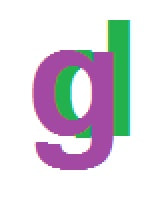


 RSS Feed
RSS Feed


